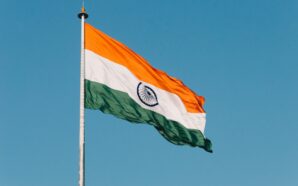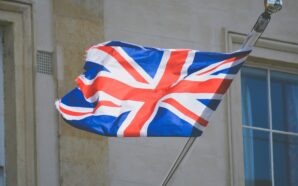Brazil wants to have greater independence online after learning about the potential spying the USA does on internet users from foreign countries.
While the country cries out for online privacy and is starting to take measures towards it, many experts fear Brazil’s move to online independence will turn into a potential danger, a step that will fracture a worldwide network that has strived for years with less intrusion from the governments.
I Spy
Brazilian President Dilma Rouseff ordered the series of steps to be taken which aims at a larger width of Brazilian online independence and security after NSA whistleblower Edward Snowden’s revelations about widespread spying done by Washington, especially in the communications going through and from foreign countries.
According to Snowden, the US National Security Agency had spied Rouseff’s personal communications, hacked into the network of state-owned oil company, Petrobas, and was able to gather data plus monitors of the coming and goings of the country’s other citizens who entrusted their personal information in US-owned internet companies like Facebook and Google.
The president was very angry when the revelations came into her knowledge that she cancelled her scheduled visit to Washington next month where she is supposed to be the guest of honor in a state dinner.
Internet policy experts and security personnel stated that the Brazilian president’s reaction to the disclosures of ex-NSA worker Snowden is justifiable but they are afraid the steps she is about to implement are very drastic and may lead the course of the internet into balkanization.
“The global backlash is only beginning and will get far more severe in coming months. This notion of national privacy sovereignty is going to be an increasingly salient issue around the globe,” stated Sascha Meinrath, director of the Open Technology Institute at the Washington-based New America Foundation think tank.
Brazil’s Plan Spells Trouble
Brazil’s plans don’t require its citizens to not use US-based web services. However, Brazilian government wants its own country’s data, may they be government or personal information of the country’s citizens, to be locally stored while the nation gets wider control over every Brazilian’s internet use so as to protect them from the snoopy NSA.
Brazil also wants to put up underwater fiber optic which will pass directly to Europe and connecting other Latin American countries but will exclude America; this is in accordance to their move of a US-free network. Currently, most of Brazil’s traffic goes through America.
But Meinrath disagrees with the nation’s plans because of the danger it entails – by mandating this type of geographic confinement, some popular applications and software might be rendered inoperable which in turn will threaten internet’s open and free structure.
Additionally, by next year, Brazil’s national postal services is planning on putting up an email service alternative to Gmail and Yahoo! which, according to Snowden’s documents, are companies that work closely with the NSA.
Going US-Free Isn’t the Best Way
A computer security expert in John Hopkins, Matthew Green, stated that Brazil’s plans to protect itself by digital isolation might not be the best way to deal with the problem as by doing so, it will be discouraging innovations technology-wise without the full assurance that it really is protected from outside intrusion.
“It’s sort of like a Soviet socialism of computing,” he said about the country’s plan to put up its own encrypted email service, adding that the U.S. “free-for-all model works better.”
-
In a significant escalation of the ongoing dispute over misinformation, Brazil Supreme Court Justice Alexandre de Moraes has initiated...
-
Mumbai Takes the Throne for the Most Billionaires in Asia In a historic milestone, Mumbai has overtaken Beijing to...
-
French President Emmanuel Macron emphasized the need for Western powers to remain vigilant in the face of the Ukraine...
-
The Philippines has strongly denounced what it described as “unprovoked acts of coercion and dangerous maneuvers” by China in...
-
As Moscow Prepares to Bid Adieu, Navalny’s Funeral Raises Uncertainties and International Allegations The spokesperson for Alexei Navalny has...
-
On the two-year anniversary of the ongoing conflict between Ukraine and Russia, there is much to reflect upon. Since...
-
The Office for National Statistics (ONS) released official figures on Wednesday, revealing that the United Kingdom posted a record...
-
Neuralink Makes a Major Breakthrough with Patient A patient who has received a Neuralink brain implant can now control...
-
Greece has become the first Christian Orthodox-majority country to legalize same-sex marriage, marking a significant step forward for LGBTQ+...
-
Massive Deflation in China as CPI Plummets by 0.8% China faces mounting challenges as its consumer prices spiral deeper...
-
3 Days of Consecutive Snowing Has Wreaked Havoc on Transportation As China prepares to celebrate the Lunar New Year,...
-
Rapid Growth in Electric Cars Propels China to The Forefront of Global Vehicle Exports China has surpassed Japan as...



















